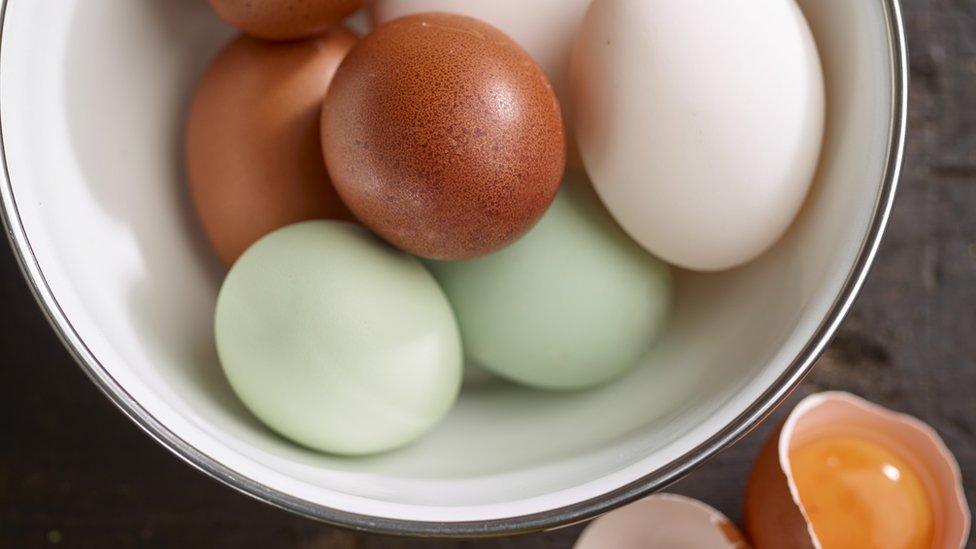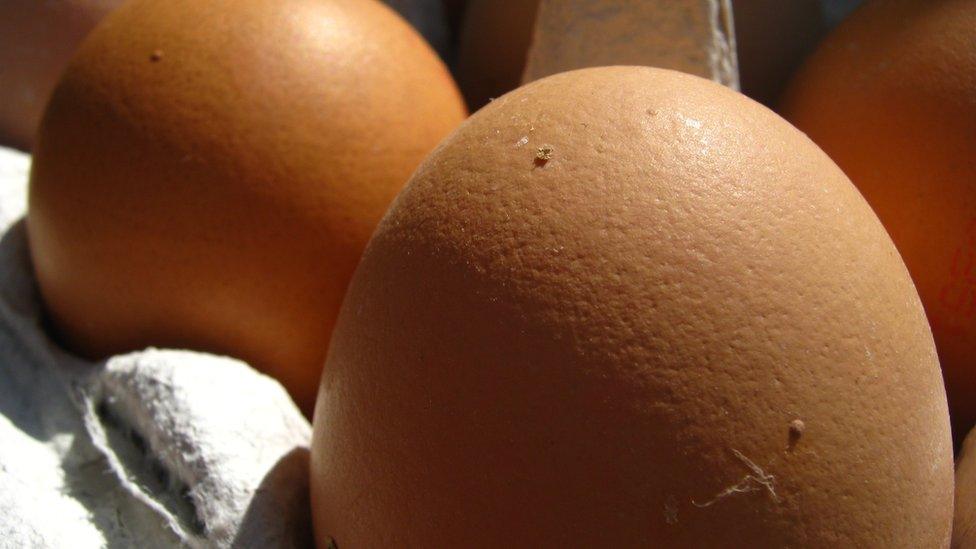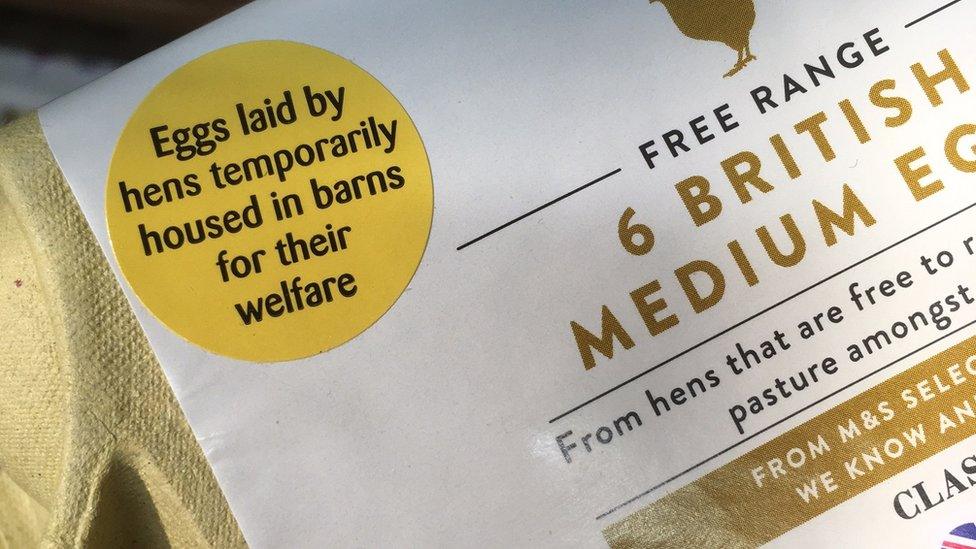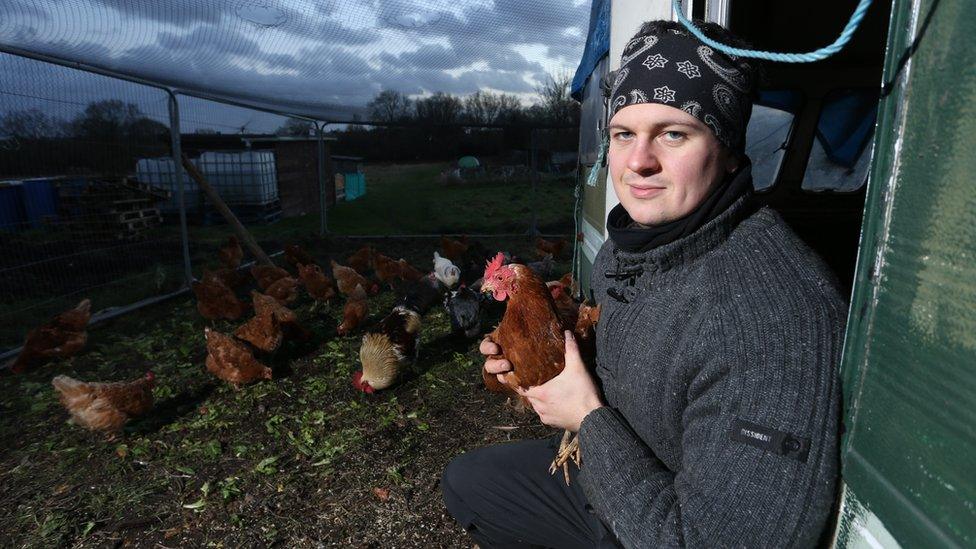As sure as eggs is eggs? It's not that simple any more
- Published

If you thought eggs were an inexpensive food, you haven't shelled out for the latest designer nutritional fad.
Caged, barn, free-range, organic: the different varieties of eggs on sale are already pretty confusing for consumers.
But now, according to leading UK egg supplier Noble Foods, it's all about the pedigree of the hen that laid them.
The firm is launching a new selection of eggs from "heritage breeds" of hens that live a privileged life on "handpicked British farms".
"These stunning blue, fresh British farm eggs are laid by smaller flocks, free to roam on grassy pastures, and fed on wholesome vegetarian diets," reads the blurb for Heritage Breeds Royal Legbar free-range blue hen eggs on the Ocado website.
And if you don't know your Royal Legbar from your Foghorn Leghorn, the firm helpfully explains the refined origins of the fowl: they are "from the renowned Legbar family and descended from the Araucana breed".
Eggsonerated
According to the British Egg Industry Council, 12.6 billion eggs were eaten in the UK last year, up 2% on the year before.
In the financial year 2016-17, the market was worth £947m, a 6% increase year-on-year.
Industry analysts say that after decades in which eggs were seen as a danger to health, attitudes have now changed in the light of evidence that eating them has little effect on cholesterol levels.
Noble Foods says demand for its "speciality eggs" is surging, as is the market for eggs in general.
"The transformation of the UK egg sector is one of the last decade's biggest success stories, with consumption increasing every year for 10 consecutive years," says the firm.
High prices
"In 2016, retail egg sales rose 5%, accounting for 250 million more eggs sold in total. Volume sales of speciality eggs are particularly strong, with the segment surging 8.8% in the year ending in March 2017."
But if you want to sample these culinary delights in your next omelette challenge, you may need to have a nest-egg of your own stashed away.
Half a dozen of these eggs will typically set you back £2.25, about three times the price of the cheapest supermarket variety.
Keeping these "renowned" hens in the style to which they have become accustomed clearly doesn't come cheep.
- Published28 February 2017

- Published21 February 2017

- Published27 February 2017
- Published25 January 2017
